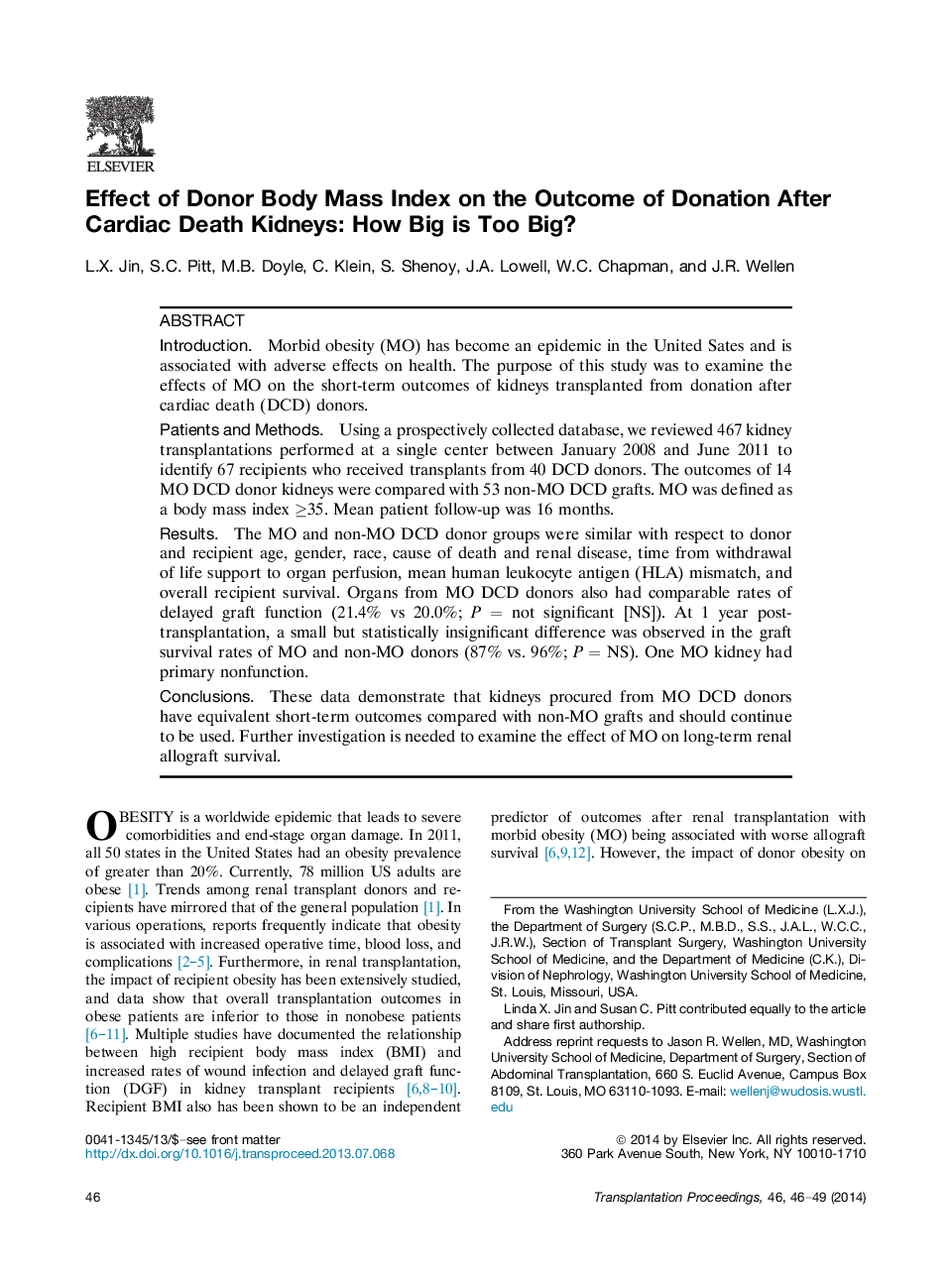| Article ID | Journal | Published Year | Pages | File Type |
|---|---|---|---|---|
| 4256740 | Transplantation Proceedings | 2014 | 4 Pages |
IntroductionMorbid obesity (MO) has become an epidemic in the United Sates and is associated with adverse effects on health. The purpose of this study was to examine the effects of MO on the short-term outcomes of kidneys transplanted from donation after cardiac death (DCD) donors.Patients and MethodsUsing a prospectively collected database, we reviewed 467 kidney transplantations performed at a single center between January 2008 and June 2011 to identify 67 recipients who received transplants from 40 DCD donors. The outcomes of 14 MO DCD donor kidneys were compared with 53 non-MO DCD grafts. MO was defined as a body mass index ≥35. Mean patient follow-up was 16 months.ResultsThe MO and non-MO DCD donor groups were similar with respect to donor and recipient age, gender, race, cause of death and renal disease, time from withdrawal of life support to organ perfusion, mean human leukocyte antigen (HLA) mismatch, and overall recipient survival. Organs from MO DCD donors also had comparable rates of delayed graft function (21.4% vs 20.0%; P = not significant [NS]). At 1 year post-transplantation, a small but statistically insignificant difference was observed in the graft survival rates of MO and non-MO donors (87% vs. 96%; P = NS). One MO kidney had primary nonfunction.ConclusionsThese data demonstrate that kidneys procured from MO DCD donors have equivalent short-term outcomes compared with non-MO grafts and should continue to be used. Further investigation is needed to examine the effect of MO on long-term renal allograft survival.
